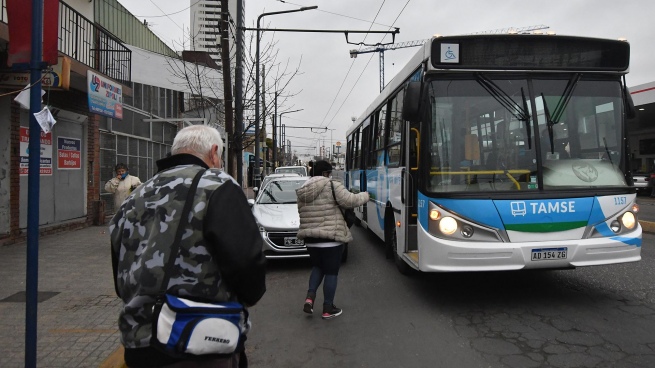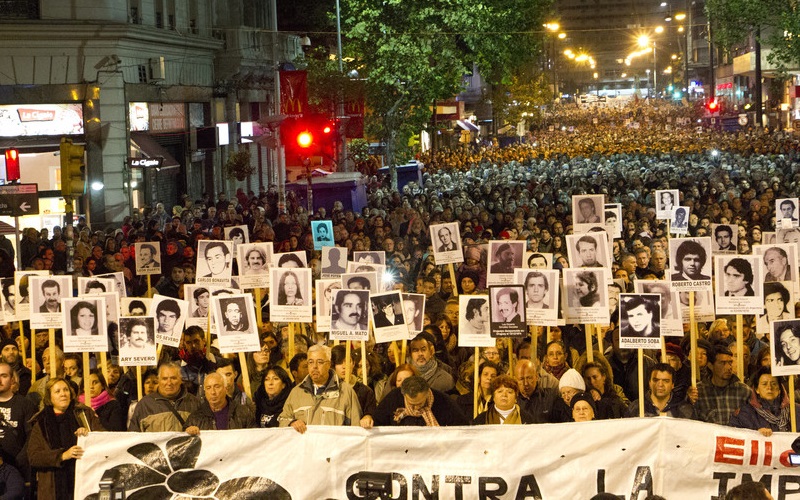The decentralization expert Fortunato González, with his dissertation on federalism, opened on May 17 the series of exhibitions organized by the Fermín Toro Institute of Parliamentary Studies (Iepft) to generate reflections on public policies in Venezuela. They will be held on Tuesdays every four weeks, until November 29.
The expert began by highlighting how unfortunate it is “to observe that in our municipalities we are losing the foundation of democracy. There is no separation of powers; there is also no respect for citizen participation and even more serious, there is no municipal autonomy: the municipal council responds to the interests of the regime and the political party more than to the citizens”.
González, who is a researcher on decentralization processes in Venezuela, said that the divisions of political parties at the local level “have been imposed by the interests of the national parties. And that even causes problems of personal enmity between the citizens themselves and the councillors”.
Series of master conferences
Last Tuesday the 17th was the first of the Iepft conferences in which reflections on the subject were made, based on the vision of different specialists in parts of the country.
The presentation was given by Professor Carlos Mascareño, expert in development studies, who on behalf of the Institute and its president Ramón Guillermo Aveledo invited the participation of the series. They are carried out via zoom, on Tuesdays of every four weeks, according to the established schedule.
The themes of the eight conferences are:
- Sustainable Cities. Dictated on Tuesday, June 14, by the engineer Zulma Bolívar.
- Open Government. On July 12, by Professor Christi Rangel.
- Public services: water and urban sanitation. On August 9, by engineer Norberto Bausson.
- Municipal taxation from a business perspective. On September 6, by Tiziana Polesel, president of Consecomercio.
- Public policies and environment. On October 4, by Jesús Delgado.
- Policies and gender equality. Scheduled for November 1, by Judith Arellano.
- Economic and social development. It is dated November 29, it will be dictated by Carlos Mascareño.
Public policies need freedom regime
González analyzed the issue of local public policies, from his vast professional experience and personal experience in Mérida. He indicated that he did not have electricity, water or internet at the time of his presentation.
He defined public policies as a route plan towards growth sustainable economic and social development, in accordance with the current Constitution and the Sustainable Development Goals of the United Nations. He also mentioned essential requirements.
In the first place, he pointed out that they can only be formulated by State institutions, whether national in the case of regions or local in the case of municipalities. “Without institutions that formulate them, there will be no public policies.” And he stressed that they require “legitimation.”
Citizen Participation Base
Also, they have legitimacy. “The most modern foundation, not of legality, is that it has a base of citizen participation that is essential to legitimize them in a modern democracy.”
Additionally, that farmers, merchants, producers and NGOs, among others, have the possibility of expressing an opinion on this public policy. “If it coincides with another region or state, it would coincide with the federative political power and that from the outset would already have greater legitimacy.”
He referred to the issue of cities, after reviewing the history of successful public policies formulated in the past by corporations such as Fudeco, CVG, and Corpoandes.
On this, he specified that having public policies in the locality implies having full local autonomy. As well as with a popularly elected municipal council that acts in accordance with the interests of local life.
“This requires a constitutional, democratic political framework, because there can be no autonomy, neither regional nor federal nor local, in a totalitarian regime of dictatorships, however soft they may be, or however militaristic they may be.”
He went on to say that “the State requires democracy and the formulation of public policies, either at the national level to benefit the regions that coincide or not with the federal or municipal states, there must be a system of freedoms. Without this, it is very difficult for successful public policies to exist”.
Decentralization is democracy
Democracy depends on the “stupid vote”, said the expert citing the essay Smart Societies, Stupid Societiesby the Spanish author and philosopher José Antonio Marina.
“There are cities that are living very well, but end up electing the son of a dictator as has just happened in the Philippines. There are attitudes that simply respond to categories not of the brain or the heart, but of the belly or the liver. But not a reflection as a society should do when selecting its politicians and its rulers. He quoted.
On the other hand, he added that in Latin America cases such as Colombia, Peru, and Chile “have gone through political situations and fall back into the same.” “It would be necessary to reflect a little on the political maturity of societies that, when they live better, go through the shortcuts of abject populism.”
There is a populist crisis, González said.
However, he exposed the situation of the political parties in the midst of the “populist, demagogic and corruption crises that killed the political parties in Venezuela.” “Today what exists are groups that do not have a clear definition from the ideological point of view. They cannot even be described as democratic, left-right, but personal interests prevail in most cases, and when any possibility arises in any locality, or place, the national power of those parties liquidates it, drowns it” , he pointed.
After lamenting the progressive loss of democracy in the municipalities, he said that one of the challenges of the decentralized federal state is that, unlike other countries, the accumulated experience indicates that “in Venezuela it has been a historical lie.”
“In Venezuela, the federal State has never existed in practice, except perhaps in the only moment of greatest splendor that was in the second government of CAP and the transition government of President Ramón J Velásquez. Then comes the tyranny, the semi-democratic but militaristic government of Chavez and then this current disaster of an autocratic tyranny with some civilian touch”, he pointed out.
Strengthen federal power
He was in favor of a reform of the current Constitution, in which, although the mechanisms to strengthen federal power are established, the distribution of power must be considered. “There is no power where there is no treasury of its own and where there are no exclusive powers. It would be necessary to give more functions of their own to the states, and they must understand that they have to collect taxes and be coordination entities with the municipalities that are the ones that really have problems with the population every day.”
He made clear his disagreement with a refoundation of the State and with a new Constitution that would be added to the 36 registered in history, if the amendment counts. “With the current one we can work fundamentally on reforms of the State structure. The distribution of powers in the State, strengthen federal power by assigning its own exclusive powers and its own revenues. Because currently the Constitution does not have. Also, shield certain municipal powers that are interfered “
It is also necessary, he indicated, to strengthen local democracy, and rethink the cooperative federal model to bring municipalities closer to each other, by small regions. “Venezuela has 335 municipalities and should have no less than 1,500. To raise the number, you have to think very well how to control the issue of bureaucracy, corruption, the distribution of the municipal budget as if it were a piñata, and make it much more efficient.
democratic values
He highlighted the Venezuelan’s conviction for democratic values, over and above the crisis he is surviving, and cited the case of Barinas, which chose its candidate, despite the division of the opposition and the government’s abusive maneuvers.
“It will be necessary to evaluate how this new governor has been behaving, and also the enormous number of mayors and councilors who won throughout the country,” he said.
He considered it essential to generate in the populations of the municipalities greater confidence in coexistence and participation, “a shared responsibility that we all have the obligation to assume for a peaceful, prosperous collective life, through citizen participation and awareness to elect good councilors who must be first good parents, good mayors, and having highly participatory and open local governments”.









